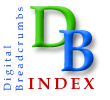
| Search |
 |
||||||||
| Words | Images | Audio | Scholar | ||||||||
|
||||||||
|
"The challenge for librarians in the Google age . . . is to make sure users eventually are directed to 'premium content provided by the library, not diverted from it.'" L. Susan BeDell, VP Higher Education Publishing We believe the above quote represents the quandary of librarians, academic information providers, archivists, and writing teachers and researchers: How can students be directed to the "best" resources? Concerns about inappropriate use of the Internet for research purposes are not unfounded and are often motivated by a genuine desire to help students appreciate the value of texts that go through a rigorous peer-review process. But our own research goal is quite different: We seek to offer a broader perspective on what constitutes legitimate and effective scholarly research practices by illustrating how researchers' use of “non-scholarly” online sources can be part of effective scholarly research and writing processes, helping researchers find sources and develop ideas for scholarly work. In order to make this first step--to broaden our perspective--we argue that a more ethnographic, participant-researcher approach to scholarship on online research and citation practices will help us to see what researchers are actually doing (rather than examining what they are not doing well). Using these methods, even a preliminary look at digital research practices indicates that scholars at both the graduate and undergraduate levels see general and commercial search engines like Google and Amazon as extending their ability to practice scholarship. In some cases, these "commercially-based" searches take place in conjunction with academic resources that can be accessed through university library portals, and, in other cases, these outside resources exclude library resources entirely. The enthusiasm these researchers show towards their practices, and the success they have in locating and using outside resources for scholarly purposes, provides an opportunity for us to expand how we understand and categorize the search for knowledge resources in digital spaces. |